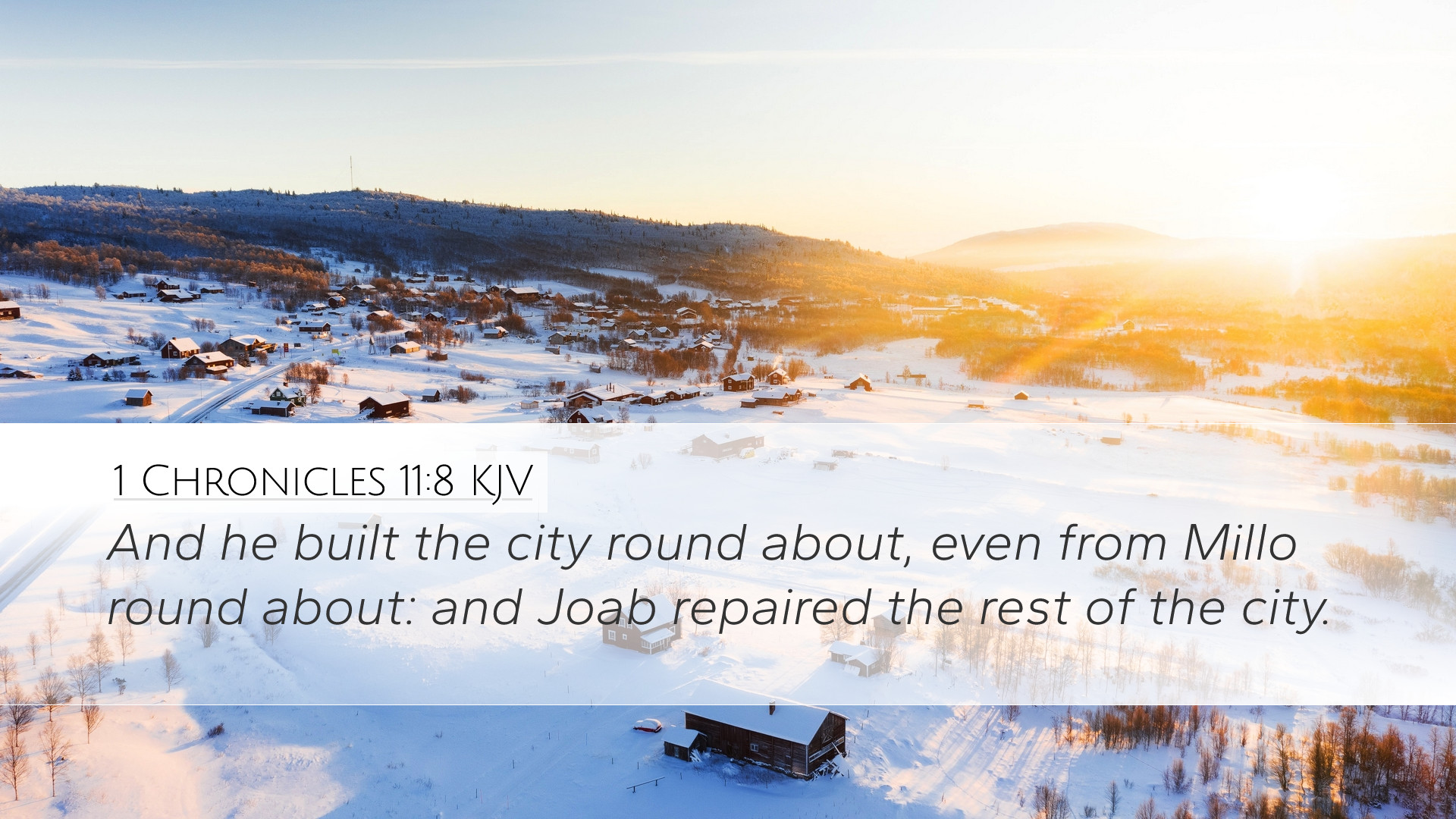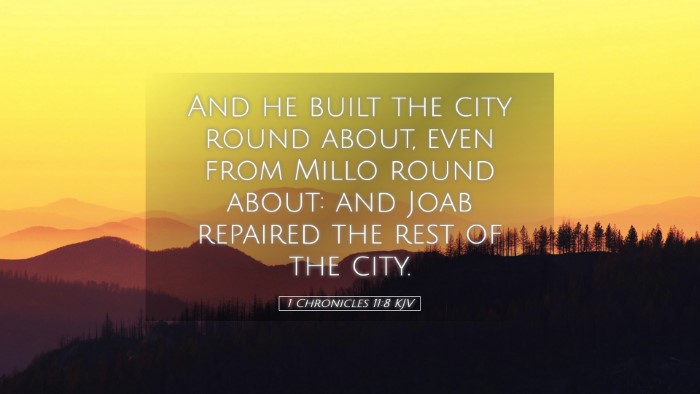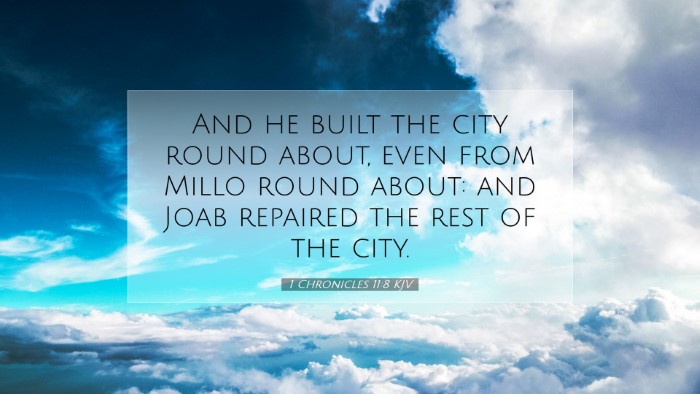Commentary on 1 Chronicles 11:8
Verse: "And he built the city round about, even from Millo round about: and Joab repaired the rest of the city."
Introduction
This note pertains to the reign of King David and the establishment of Jerusalem as his capital. The verse illustrates not only the physical fortification of the city but also the spiritual significance of Jerusalem in the biblical narrative. The various public domain commentaries provide insights into its historical context, theological implications, and practical applications.
Historical Context
1 Chronicles captures significant moments in Israel’s history, focusing on the lineage and reign of David. The importance of Jerusalem, or Zion, is evident as it becomes the political and spiritual heart of Israel. David’s conquest of Jerusalem marked a turning point in Israel’s history, representing God’s fulfillment of His promises to His people.
Matthew Henry's Commentary
Henry highlights the importance of Joab's role as a military leader. Joab's work in repairing and beautifying the city signifies the establishment of order and safety. According to Henry, the "city round about," referenced in this verse, depicts the comprehensive efforts to ensure Jerusalem's security and prominence.
Albert Barnes' Notes
Barnes elaborates that the term "Millo" references a specific area in Jerusalem known for its strategic importance. He suggests that the repairs and reinforcements initiated by Joab were crucial for safeguarding the city against potential threats. Barnes notes that this verse underscores the importance of physical fortifications in the ancient world, paralleling spiritual defenses in a believer's life.
Adam Clarke's Commentary
Clarke emphasizes the transformation of Jerusalem under David’s reign. He observes that the phrase "repaired the rest of the city" indicates ongoing efforts to enhance the city's livability and its standing as the capital. Clarke relates this to the broader narrative of God establishing David as king and Jerusalem as the center for worship, proving His faithfulness to His promises.
Theological Implications
This verse invites reflection on the connection between physical spaces and the presence of God. The establishment and fortification of Jerusalem serve as reminders of God’s intention to dwell among His people. It highlights the notion that earthly cities can hold significant divine purpose if devoted to God’s glory.
Significance of Leadership
The role of Joab points to the importance of effective leadership in both spiritual and civic realms. Leaders like David and Joab remind us of our responsibility to invest in and protect our communities, both physically and spiritually.
Practical Applications
- Spiritual Restoration: Just as Jerusalem was restored, believers are called to engage in the restoration of their lives and communities.
- Leadership and Responsibility: The example of Joab illustrates the need for proactive leadership in addressing challenges within the church and society.
- City of God: Jerusalem serves as a metaphor for the ultimate spiritual reality of believers—the New Jerusalem, a place of God’s everlasting presence.
Conclusion
1 Chronicles 11:8 encapsulates profound truths about leadership, divine promise, and the significance of community. By combining insights from Henry, Barnes, and Clarke, we see the multifaceted importance of Jerusalem as a historical and spiritual symbol. As we meditate on this verse, may we be inspired to strengthen our own community and leadership for God's kingdom.


